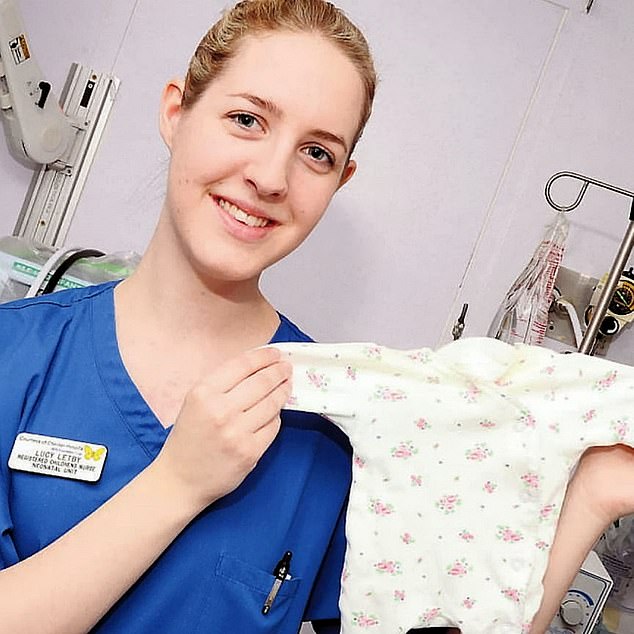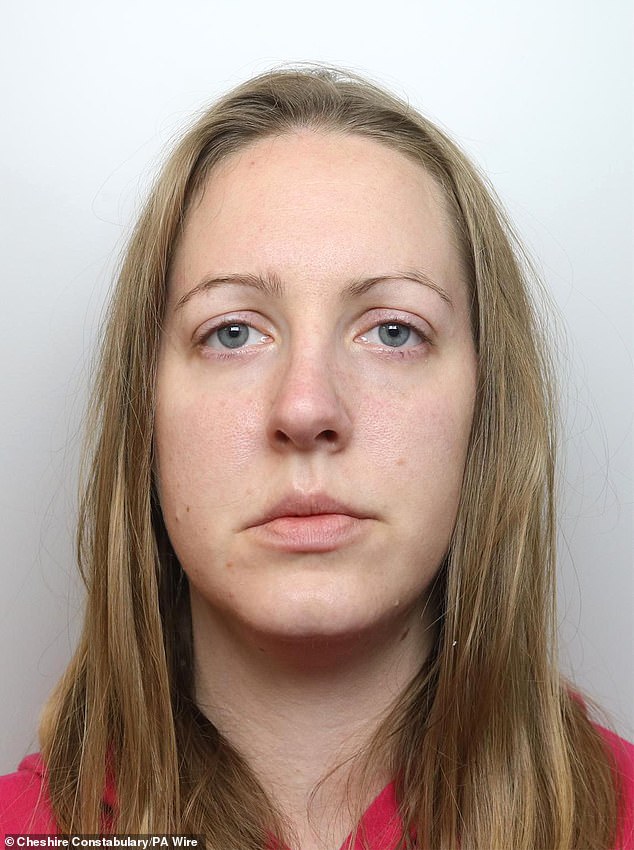There can be no more despicable a crime than to murder a baby. To deliberately, systematically and with malice aforethought kill seven newborn infants in their hospital cots and attempt to kill seven more is an evil almost beyond belief.
That horror is compounded when the serial murderer proves to be a young, seemingly dedicated neo-natal nurse, in whose care those babies had been placed by trusting parents. It rocks the nation’s confidence not just in the NHS but in humanity itself.
So, it’s hard to imagine a case more emotive or of greater national importance than that of Lucy Letby. Because of this, it’s crucial that the right outcome has been reached.
When Letby was sentenced to 15 full-life terms there was almost a sense of relief.
Nothing could bring back the dead babies or heal those whose lives had been so grievously damaged but there was at least the consolation that justice had been done. Or had it?
Nearly two years after her initial conviction, the drumbeat of doubt grows ever louder and more persistent. New evidence has emerged on several fronts which, had it been available to the court, may conceivably have swayed the jury in another direction.
The Daily Mail does not take a position on Letby’s innocence or guilt. Indeed, there are strong differences of opinion among our senior journalists over whether her conviction was safe.

New evidence has emerged on several fronts regarding the casy of Lucy Letby

Letby was sentenced to 15 full-life terms for the murder and attempted murder of several babies in Chester
Columnists Peter Hitchens and Nadine Dorries believe it wasn’t. Northern Editor Liz Hull, who covered the murder trials, believes it was.
But the central question here is simple – in the light of growing unease, does the Letby case need to be revisited?
We are all too aware of court convictions presented at the time as being beyond reasonable doubt that were later found to be false.
Recent examples include hundreds of sub-postmasters and mistresses wrongly criminalised in the Horizon scandal and Andrew Malkinson, who spent 17 years in prison for rape before being exonerated because of DNA evidence.
Is it possible Letby may also be the victim of a miscarriage of justice?
One who thinks so is Lord Sumption, an ex-Supreme Court judge and one of our most distinguished jurists. Having examined her case in comprehensive detail, he says she is ‘probably’ innocent and urges the Criminal Cases Review Commission (CCRC) and Court of Appeal to look again.
‘If Letby was wrongly convicted, and there is now a serious case that she was, it is horrifying to contemplate that this young woman may be locked up without hope until she dies,’ he wrote.
The main area of concern, as anyone who followed our award-winning podcast The Trial of Lucy Letby will know, is that there was no direct evidence that she killed these babies. No-one saw her do it and there are no meaningful forensics.
The case against her may have been circumstantially compelling, but it was based almost entirely on hypothesis and conjecture.
There had been an unusual spike in baby deaths at the Countess of Chester hospital – from up to four in an average year to 17 in a 13-month period in 2015 and 2016. It was said this could not be explained by natural causes so must have been owing to foul play. As Letby was the only nurse on duty for all the deaths under investigation, it was argued she must have been responsible.
The prosecution also relied heavily on a rambling, though undoubtedly incriminating note written by Letby, in which she apparently confesses. It concludes: ‘I am evil. I did this.’
She was accused of using several methods, including injecting air into babies’ veins to cause a fatal embolism, adding toxic levels of insulin to intravenous fluid bags and forcing air into their stomachs via a nasogastric tube.
Several expert witnesses, mainly independent paediatricians, said the babies’ symptoms were consistent with these alleged interventions and that there was no other rational explanation.
Outside court after sentencing, senior Crown Prosecution Service lawyer Pascale Jones was in no doubt the jury had come to the right verdict. ‘Lucy Letby perverted her learning and weaponised her craft to inflict harm, grief and death,’ she said.
Fast forward 22 months and many believe that is no longer quite so certain. Most significantly, a panel of 14 senior clinicians from around the world (including the UK) has analysed the medical evidence against Letby and says it is inconclusive at best.
Assembled by Dr Shoo Lee, of Toronto University, the group says it’s entirely possible the babies died of natural causes or hospital errors.
Dr Lee is a paediatric specialist and one of his research papers on identifying air embolisms in babies by a specific kind of skin discolouration was used to incriminate Letby. He says the research was misinterpreted.
A number of leading statisticians also now question the legitimacy of the key chart produced to show that every time a seemingly healthy baby suffered a collapse it was Letby who was on duty.
They say it included only those deaths and near-deaths over which she was charged. Other critical incidents, though similar and clearly relevant, were omitted, making the whole chart statistically flawed.
There is more. No tests were carried out on fluid bags supposedly spiked with insulin; the rambling ‘confession’ notes were allegedly the result of counselling sessions in which Letby was encouraged to write down her feelings to cope with stress.
There have also been longstanding concerns about more widespread failings in the unit.
None of this is a silver bullet to prove her innocence, but the questions are mounting. The pressure for a full re-examination of this totemic case now seems irresistible.
The CCRC, whose role is to examine potential miscarriages of justice and, where appropriate, refer them to the Court of Appeal is currently studying the new material. Unfortunately, it is an organisation which moves at a glacial pace at the best of times. Right now, it is falling apart.
Its chairman was sacked because of abject failings over the Malkinson case and others, and staff work almost entirely from home, despite having been provided with swanky, ultra-modern offices. Ex-Solicitor General Lord Garnier said the Commission was ‘in a state of complete collapse’.
A thorough overhaul of this hapless quango is clearly long overdue but, in the meantime, its new interim chairman, former victims commissioner and New Labour minister Dame Vera Baird needs to put the Letby case at the top of her in-tray.
It must be sent back to the Appeal Court with the utmost urgency, so the new evidence can be properly weighed and consideration given to a retrial.
As Lord Sumption points out, the higher courts are ‘extraordinarily reluctant’ to overturn convictions entered at a regular trial, for fear of undermining judges and the wider credibility of criminal trials.
But this case goes to the very heart of the criminal justice system. As it stands Lucy Letby will die in prison. If she is guilty, that is her rightful fate. However, if there is even a shred of reasonable doubt, and that doubt were not acted upon, it would be an act of unspeakable cruelty.
Justice may be blind, but it is not infallible. Mistakes are sometimes made.












